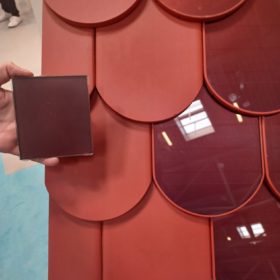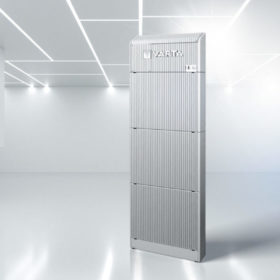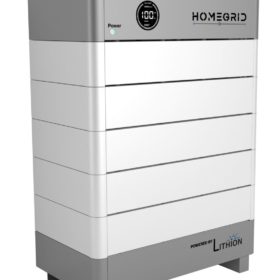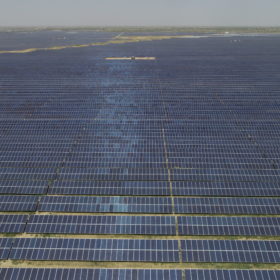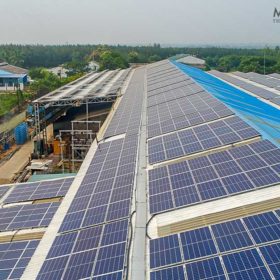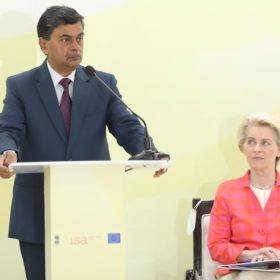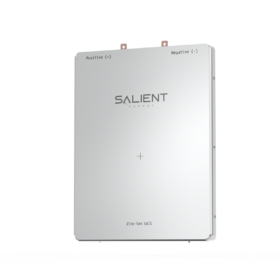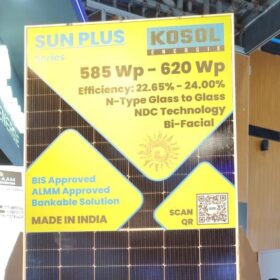Terracotta solar tiles for historical buildings
Germany’s paXos, whose solar roof tiles were bought by Meyer Burger and unveiled last year, has shown off its new “Beaver Tail” terracotta solar tiles at Intersolar 2022.
High-voltage residential battery from Varta
The new high-voltage Varta.wall storage device features an aluminum design and is available in capacities ranging from 10 kWh to 20 kWh. It also boasts an emergency power function.
Stackable home battery with 9.6 kWh to 38.4 kWh of capacity
Lithion’s Stack’d Series LFP batteries are modular and can be scaled in 4.8 kWh increments, from 9.6 kWh to 38.4 kWh.
New renewable capacity additions doubled in FY 2022
India installed 15.5 GW of non-hydro renewable energy capacity in fiscal 2021-22, from just 7.7 GW installed in the preceding fiscal year. About 90% of the total, or 13.9 GW, came from solar.
Renac Power unveils high-voltage residential battery
Renac Power’s new plug-and-play battery has a storage capacity of 3.74 kWh, but it can be enhanced in series with up to five batteries to 18.7 kWh. It has a nominal voltage of 96 V and a voltage range of 81 V to 108 V.
India to lead new energy wave
A new report from the Institute for Energy Economics and Financial Analysis (IEEFA) tracks key trends at major companies across India’s power sector value chain. It finds the nation is poised to lead the clean energy wave, with investors committing in response to the bold policies that are enabling the transition.
India’s race to 175 GW renewables slowed by performance of key States
A new report finds Andhra Pradesh, Madhya Pradesh, Maharashtra, Tamil Nadu, and Uttar Pradesh account for two-thirds of India’s 65 GW shortfall on 175 GW renewable energy target as of March 2022.
Delhi discom deploys digital data platform for solar energy management
BSES Yamuna Power Limited has deployed a digital solution pilot project that predicts the energy demand at consumption points like electric vehicle charging stations and energy generation capacity at solar rooftops. This will help the utility plan to store excess energy by considering the distribution congestion and commercial aspects.
India calls for credit guarantee fund to drive solar adoption in electricity-deprived regions globally
RK Singh, India’s power minister, and president of the International Solar Alliance (ISA) Assembly, called on nations to support solar investments in developing and under-developed regions, including Africa, through low-cost finance and credit guarantee fund.
Zinc-ion battery for residential applications
Developed by Canadian start-up Salient Energy, the zinc-ion battery has a rated capacity of 60 Ah, a nominal voltage of 1.3 V, and a volumetric energy density of 100 Wh/L. The device measures 26cmx24cmx1.2cm and weighs in at 1.3 kg
